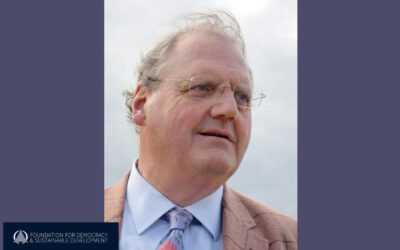Death of founder trustee, Malcolm Aickin
We were very sorry to hear of the death of Malcolm Aickin in December 2024, a former long-serving and dedicated trustee of FDSD. Malcolm was one of the founders of the Environment Foundation in 1982 and joined us in transforming that into FDSD before retiring as a trustee in 2010.






